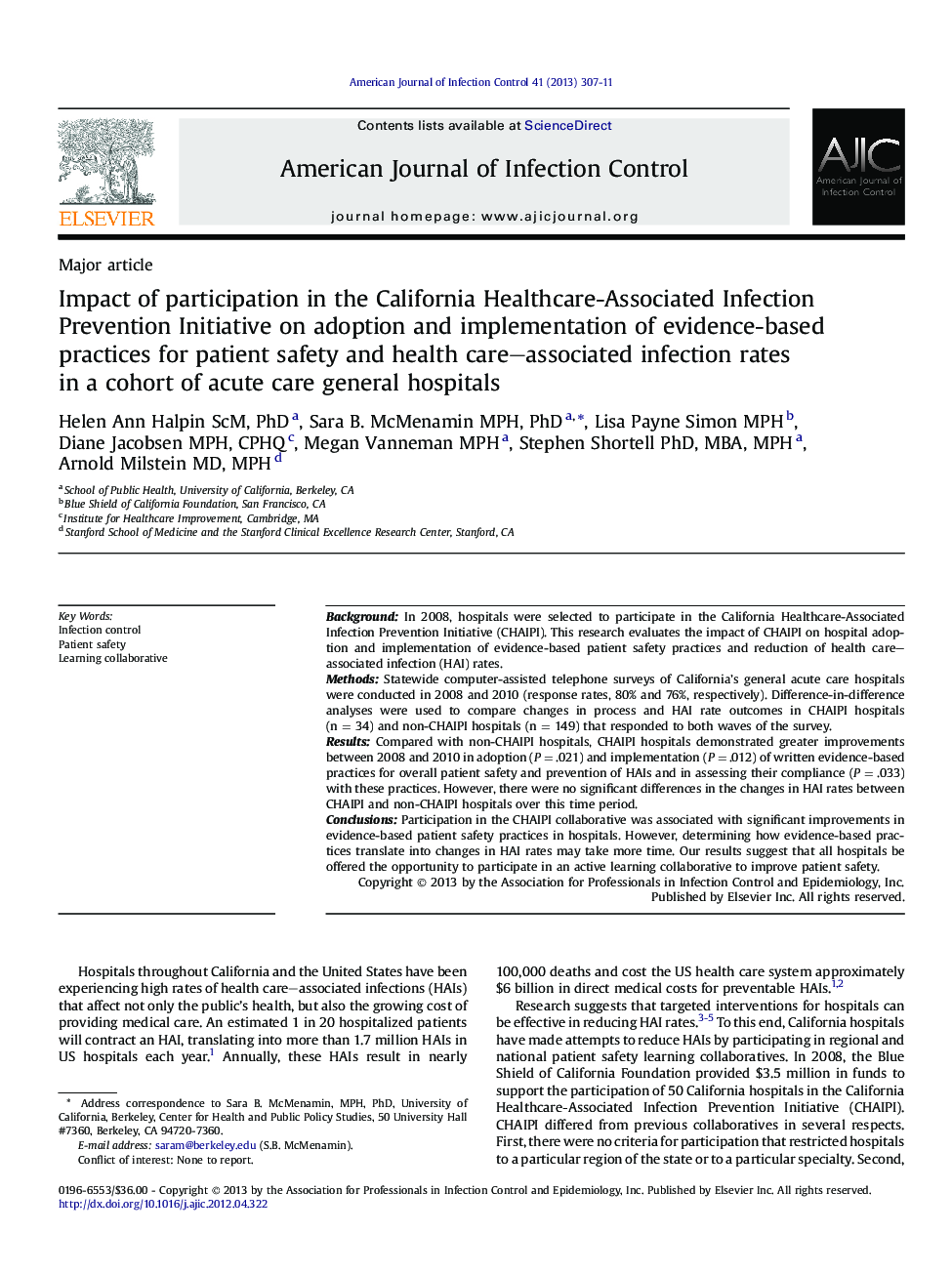| Article ID | Journal | Published Year | Pages | File Type |
|---|---|---|---|---|
| 2637458 | American Journal of Infection Control | 2013 | 5 Pages |
BackgroundIn 2008, hospitals were selected to participate in the California Healthcare-Associated Infection Prevention Initiative (CHAIPI). This research evaluates the impact of CHAIPI on hospital adoption and implementation of evidence-based patient safety practices and reduction of health care–associated infection (HAI) rates.MethodsStatewide computer-assisted telephone surveys of California's general acute care hospitals were conducted in 2008 and 2010 (response rates, 80% and 76%, respectively). Difference-in-difference analyses were used to compare changes in process and HAI rate outcomes in CHAIPI hospitals (n = 34) and non-CHAIPI hospitals (n = 149) that responded to both waves of the survey.ResultsCompared with non-CHAIPI hospitals, CHAIPI hospitals demonstrated greater improvements between 2008 and 2010 in adoption (P = .021) and implementation (P = .012) of written evidence-based practices for overall patient safety and prevention of HAIs and in assessing their compliance (P = .033) with these practices. However, there were no significant differences in the changes in HAI rates between CHAIPI and non-CHAIPI hospitals over this time period.ConclusionsParticipation in the CHAIPI collaborative was associated with significant improvements in evidence-based patient safety practices in hospitals. However, determining how evidence-based practices translate into changes in HAI rates may take more time. Our results suggest that all hospitals be offered the opportunity to participate in an active learning collaborative to improve patient safety.
